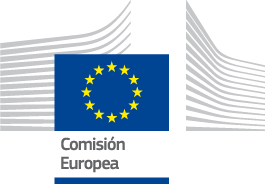

Good Practice Project
Kerteminde Bay is suffering from a decline in fishing activities, despite its highly productive waters. To tackle the issue, the Mank FLAG supported the establishment of the first Danish open-water mussel farm. Typically, in Denmark, mussel farms are located inside an inlet. The project builds on a study conducted by a local research centre, showing that the waters surrounding Kerteminde provide optimal conditions for raising mussels. Hence, Kerteminde Organic Mussel Farm aims to produce high-quality mussels in less than a year, instead of the usual timespan of over two years.
The project is expected to foster cooperation between local businesses (production, processing, sales), boost activities at the fishing harbour and create new jobs. Moreover, open-water mussel production can help improve local water quality. Indeed, bivalves such as mussels can remove nitrogen and phosphorus from the marine environment through their intensive filtration activity. Finally, the project aims to raise awareness among consumers about the high nutritional value of mussels (high protein, low fat and high omega 3 fatty acids content); and make mussels more attractive through the processing of high-quality products (for example, canning with herbs or other seasoning ingredients).
A first pilot farm was established in 2018 to test several mussel production methods. It now serves as a test site to develop efficient seaweed and oyster production methods. From 2019 onwards, mussel production has been scaling up. To date, two full-time equivalent (FTE) jobs have already been created. The farm is expected to be fully operational by the end of 2020, with a target annual harvest of 400 tonnes of mussels and five FTE jobs created. In addition, the network of actors involved in setting up Kerteminde Organic Mussel Farm has also contributed to setting up two other companies: Tangsnedkeren (seaweed production) and BKS Aqua (recreational floating platforms).
Open-water mussel, oyster and seaweed farms could potentially be established wherever water conditions allow for effective production. If successful, the methods developed by Kerteminde Organic Mussel Farm could be replicated by other businesses that aim to boost their local area’s activities and employment.
A serious challenge that needs to be taken into consideration and dealt with is the potential adverse impact of migrating seabirds feeding on the mussels – in particular, certain species of sea ducks called ‘eiders’ in the case of Denmark. Kerteminde Organic Mussel Farm is currently testing a variety of methods to cope with this issue, which, if successful, could be replicated by similar farms.
Contribution to CLLD objective: Adding value, creating jobs, attracting young people and promoting innovation at all stages of the supply chain of fishery and aquaculture products.
| Total project cost | €123 000 |
|---|---|
| FLAG grant |
€53 600
|
| Beneficiary contribution |
€69 400 |
| Timeframe of implementation | From Mar 2018 to Feb 2020 |
|---|---|
| Sea Basins |
|
| Type of area |
|
| Theme |